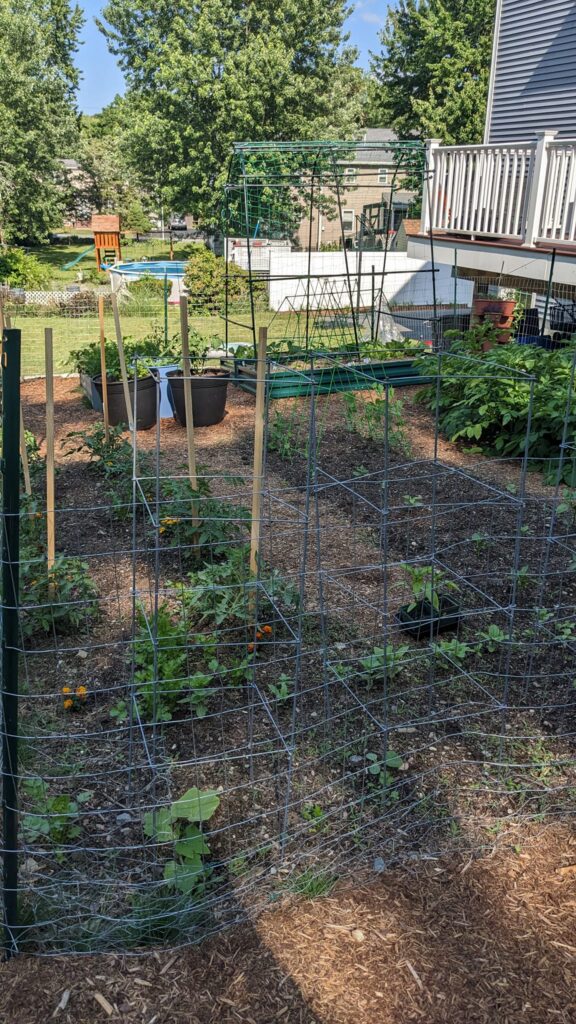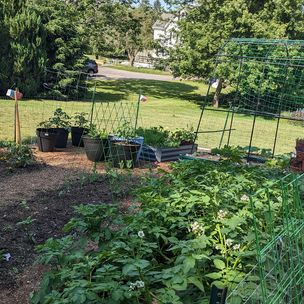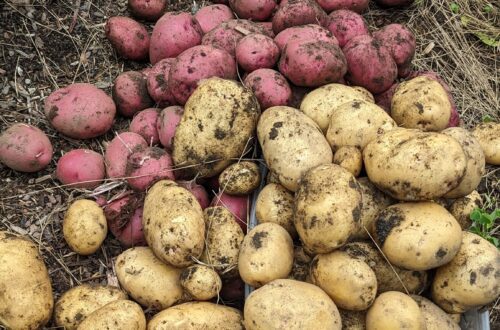Every year in February and March, I delight in the process of planning my vegetable garden. The planning process can be as simple or complex as suited to one's interest and commitment level. When I first started, my go-to was the Gateway Vegetable (don't come at me; I know it's technically a fruit!) - tomatoes. I planted just tomatoes, and they did great, so I was inspired. The next year, I added lettuce, carrots, and herbs with mixed results. After that, I was hooked, and also determined to beat the woodchuck that kept decimating my garden just when it got growing. There's a whole other post there so I won't even get into it now!

Here is a photo of my garden in June of 2023. There are potatoes, tomatoes, peppers, snap peas and snow peas, cucumbers, spaghetti squash, zucchini, and pumpkins. I also had beets, carrots, and herbs growing in a raised bed to the left, not shown in the picture. The marigolds are there to repel critters, and I also had a huge patch of zinnias growing to encourage pollinators. I'm in zone 6b in Massachusetts, so for the seeds I will start indoors, I calculate back from my last frost date, which is around May 15th. That means I'll start tomatoes around April 3rd; 6 weeks prior to that date. You can look up your hardiness zone here and then research your last frost date if you don't already know it. Or if you're not into starting seeds, it's always fun to go to a garden center and pick out your seedlings.
If you're just starting and don't know a lot about growing vegetables yet (read: me about 6 years ago), I recommend picking just two or three of your favorites for eating and do your research on how to grow them. I did start small and gradually added things over the years, but I also made the mistake of trying to grow things without knowing what pitfalls there could be, and therefore not knowing how to save my crop when those things did happen. For example, I've had squash plants of all kinds (pumpkins, zucchini, summer squash, spaghetti squash) be killed off by powdery mildew, squash bugs, vine borers, and woodchucks. Nothing is more discouraging in the garden than watching your season's worth of work be decimated by pests or disease. I will be sharing what I've learned on all those fronts!


